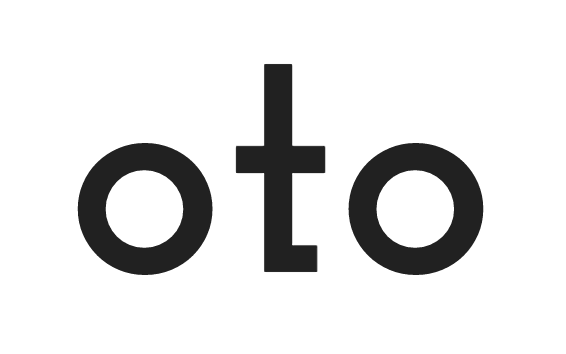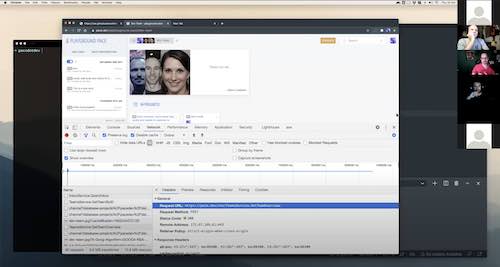Go driven rpc code generation tool for right now.
- 100% Go
- Describe services with Go interfaces (with structs, methods, comments, etc.)
- Generate server and client code
- Production ready templates (or copy and modify)
-
CLI flag to output JSON for external utility consumption. In my case, I prefer ES6 template strings for code generation instead of learning another template DSL.
oto -toJSON -o rpc.json rpc.go
-
Changed comments metadata directive to
META(key):like Go'sBUG(user):. META value can span multiple lines stopping at next META or end of comment block. Unfortunately, this is a BREAKING change from the upstream project and prevents merging my work back into upstream project :( -
Added package level comments and data
// Comment // // META(namespace): "github.com/mgutz/c" // META(imports): [ // "github.com/mgutz/a", // "github.com/mgutz/b" // ] package rpc
These templates are already being used in production.
- There are some official Oto templates
- The Pace CLI tool is generated from an open-source CLI template
Install the project:
go install github.com/pacedotdev/oto
Create a project folder, and write your service definition as a Go interface:
// definitions/definitons.go
package definitions
// GreeterService makes nice greetings.
type GreeterService interface {
// Greet makes a greeting.
Greet(GreetRequest) GreetResponse
}
// GreetRequest is the request object for GreeterService.Greet.
type GreetRequest struct {
// Name is the person to greet.
// example: "Mat Ryer"
Name string
}
// GreetResponse is the response object containing a
// person's greeting.
type GreetResponse struct {
// Greeting is the greeting that was generated.
// example: "Hello Mat Ryer"
Greeting string
}Download templates from otohttp
mkdir templates \
&& wget https://raw.githubusercontent.com/pacedotdev/oto/master/otohttp/templates/server.go.plush -q -O ./templates/server.go.plush \
&& wget https://raw.githubusercontent.com/pacedotdev/oto/master/otohttp/templates/client.js.plush -q -O ./templates/client.js.plushUse the oto tool to generate a client and server:
mkdir generated
oto -template ./templates/server.go.plush \
-out ./generated/oto.gen.go \
-ignore Ignorer \
-pkg generated \
./definitions
gofmt -w ./oto.gen.go ./oto.gen.go
oto -template ./templates/client.js.plush \
-out ./generated/oto.gen.js \
-ignore Ignorer \
./definitions- Run
oto -helpfor more information about these flags
Implement the service in Go:
// greeter_service.go
package main
// GreeterService makes nice greetings.
type GreeterService struct{}
// Greet makes a greeting.
func (GreeterService) Greet(ctx context.Context, r GreetRequest) (*GreetResponse, error) {
resp := &GreetResponse{
Greeting: "Hello " + r.Name,
}
return resp, nil
}Use the generated Go code to write a main.go that exposes the server:
// main.go
package main
func main() {
g := GreeterService{}
server := otohttp.NewServer()
generated.RegisterGreeterService(server, g)
http.Handle("/oto/", server)
log.Fatal(http.ListenAndServe(":8080", nil))
}Use the generated client to access the service in JavaScript:
import { GreeterService } from 'oto.gen.js';
const greeterService = new GreeterService();
greeterService
.greet({
name: 'Mat',
})
.then((response) => alert(response.greeting))
.catch((e) => alert(e));You can provide strings to your templates via the -params flag:
oto \
-template ./templates/server.go.plush \
-out ./oto.gen.go \
-params "key1:value1,key2:value2" \
./path/to/definitionWithin your templates, you may access these strings with <%= params["key1"] %>.
It's possible to include additional metadata for services, methods, objects, and fields in the comments.
// Thing does something.
// field: "value"
type Thing struct {
//...
}The Metadata["field"] value will be the string value.
- The value must be valid JSON (for strings, use quotes)
Examples are officially supported, but all data is available via the Metadata map fields.
To convert definitions to JSON for external utility consumption
oto -toJSON greeter_service.go | jq '.services[0].name'
oto -toJSON -out greeter_service.json greeter_service.goTo provide an example value for a field, you may use the example: prefix line
in a comment.
// GreetRequest is the request object for GreeterService.Greet.
type GreetRequest struct {
// Name is the person to greet.
// example: "Mat Ryer"
Name string
}- The example must be valid JSON
The example is extracted and made available via the Field.Example field.
Special thank you to:
- @mgutz - for struct tag support
- @sethcenterbar - for comment metadata support


